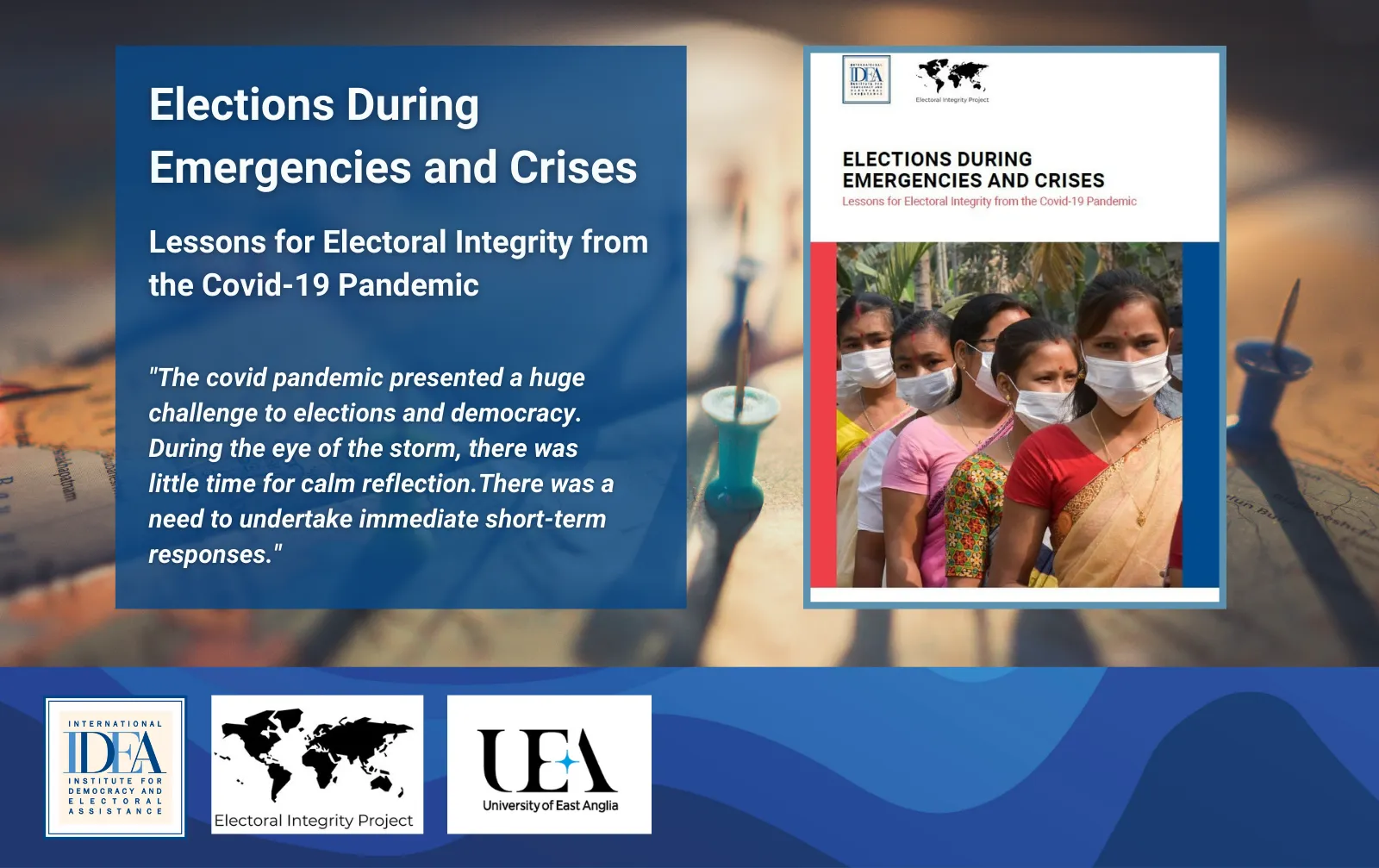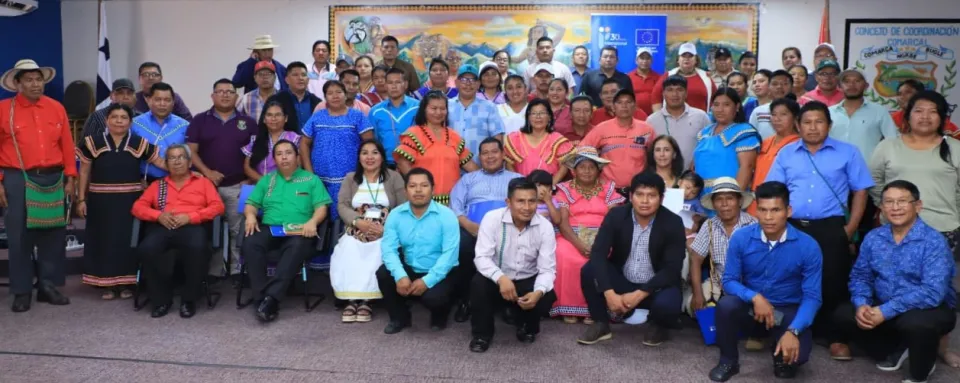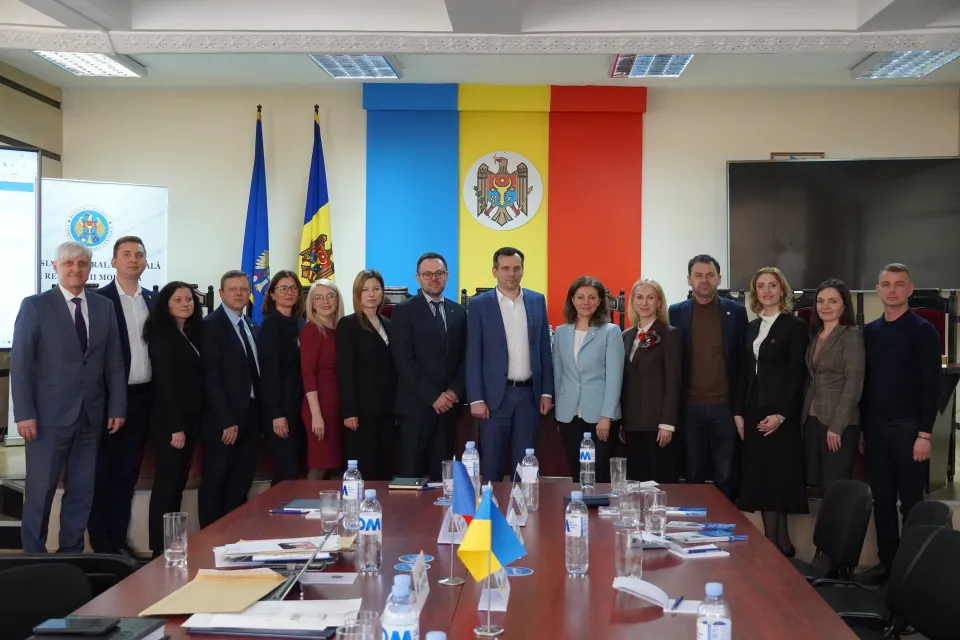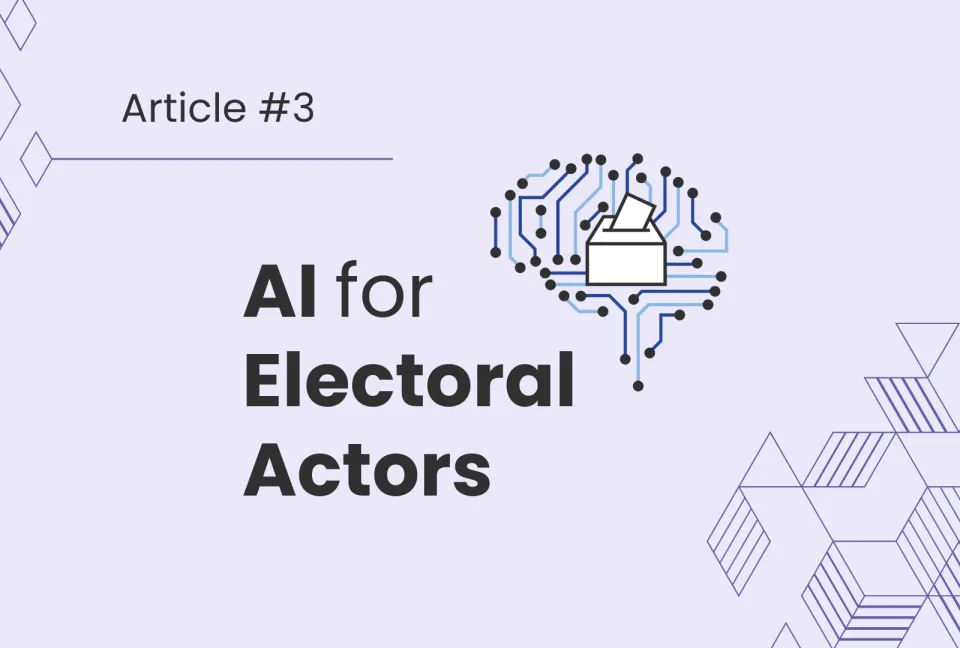Electoral reforms needed worldwide to protect elections from future emergencies, researchers urge

STOCKHOLM, May 8 – Electoral reforms should be undertaken worldwide to learn the lessons from holding elections during the pandemic and prepare for future emergency situations, leading researchers have said in a new book.
The International Institute for Democracy and Electoral Assistance (International IDEA) and the Electoral Integrity Project (EIP) have published a new extensive volume learning the lessons of holding elections during the Covid-19 pandemic.
The pandemic was thought to pose a major threat to democracy by providing an opportunity for would-be autocrats to consolidate power and undermine human rights. It also posed a huge logistical challenge to those running elections.
"Elections During Emergencies and Crises: Lessons for Electoral Integrity from the Covid-19 Pandemic” is edited by Toby S. James (University of East Anglia), Alistair Clark (Newcastle University), and Erik Asplund (International IDEA). It features a comprehensive set of 26 country case studies and 8 thematic chapters. It examines how the pandemic affected election quality, what measures were put in place to protect elections, and what worked in defending them. The volume makes recommendations for how elections can be pandemic-proof in the future.
The pandemic undermined elections – but not everywhere
The book reveals that election quality was undermined in many countries during the pandemic. Effects could be seen with reduced opportunities for electoral participation, legal conflicts, and reduced international scrutiny of elections. For example:
- In-person campaigns events organized by the opposition were either prevented from taking place or restricted in Zambia, whereas the ruling party’s campaign activities were largely unrestricted.
- There was lower turnout during pandemic elections. During the period 11 March 2020 to 31 December 2021, turnout declined by 4.1 percentage points on average at national contests and by 6.0 percentage points at sub-national contests.
- Electoral officials often struggled to receive sufficient resources to run elections – with some elections not held at all to save money.
- There were disputes about the constitutionality of elections – such as those surrounding the French local elections in 2020.
- There was reduced scrutiny of elections with electoral observation activities often either no longer possible, or much reduced activities.
- Voters were often disenfranchised if they had covid on election day and there was no provision for them to vote.
The experience was varied around the world, however, with some countries able to avoid the worst possible effects of the pandemic through collaboration and co-operation between key stakeholders. For example:
- Safety guidelines and equipment were widely provided to electoral officials and voters on election day.
- Election postponements were made to protect elections. During the first two years of the pandemic elections were postponed in at least 80 countries and territories.
- Special voting procedures were put in place to enable citizens to cast their vote such as ballot boxes being brought to homes and hospitals.
A call to action for reformers
Emergency situations are likely to arise in the future given predictions about increased global warming, potential new viruses, but also other natural disasters such as earthquakes, wildfires, hurricanes and floods.
Many countries were ‘caught short’ because their electoral procedures and constitutions did not enable them to respond to the situation. To be ready to respond better in the future, the book calls for 11 reforms. These include:
- Revising electoral law to clearly specify the circumstances under which election postponement is permitted in emergency situations.
- Providing citizens with alternative voting arrangements for emergency situations.
- Developing cross-party solutions to running elections – rather than unilateral decisions by governments.
Professor Toby James said: ‘The covid pandemic presented a huge challenge to elections and democracy. During the eye of the storm, there was little time for calm reflection. There was a need to undertake immediate short-term responses. With a little distance from the immediacy of the pandemic, now is an opportunity to take action to assess whether elections are ready for future emergencies’
Professor Alistair Clark said: ‘Those running elections during the COVID-19 pandemic needed to react in real-time, balancing potential contagion alongside the importance of citizens’ democratic rights. This volume combines research from around the world about how countries did this. It draws wider conclusions on lessons learned about holding elections during major emergencies. The book presents a valuable resource for election administrators and policymakers looking to the future’.
Erik Asplund said: ‘Action is needed for policymakers to strengthen their preparedness for another natural disaster, unexpected challenges - but also to strengthen their underlying systems for running elections with integrity. The Covid-19 pandemic highlighted the need for election authorities around the globe to adopt risk management frameworks, resilience-building measures and crisis management procedures to protect elections.’
NOTES FOR EDITORS
The book will be presented during a Council of Europe event, Parliamentary Conference Elections in Times of Crisis: Challenges and Opportunities.
The book was funded by the Economic and Social Research Council (ESRC), as part of UK Research and Innovation’s rapid response to COVID-19.
MEDIA ENQUIRIES
For media enquiries, please contact:
Alistair Scrutton, Head of Communications and Knowledge Management at a.scrutton@idea.int
Tel: +46 707 211098
Erik Asplund, Senior Programme Officer at e.asplund@idea.int
Toby S. James, Professor in Politics and Public Policy at t.s.james@uea.ac.uk
International IDEA
More information about the intergovernmental organization International IDEA can be viewed here
The International Institute for Democracy and Electoral Assistance (International IDEA) is an intergovernmental organization with 34 Member States with the sole mandate to support and advance democracy worldwide. International IDEA contributes to the public debate on democracy and assists in strengthening process, reforms, institutions and actors that build, advance and safeguard democracy, with a focus on electoral processes, constitution-building, democracy assessment, and political participation and representation. Mainstreamed across all of our work is gender and inclusion, conflict sensitivity and sustainable development.
International IDEA is one of the most trusted global sources of data and analysis on the health of democracy around the world.
Electoral Integrity Project
The Electoral Integrity Project is an independent academic study founded in 2012. It produces innovative and policy-relevant research comparing elections worldwide, which are designed to improve the quality of elections. The project is currently directed by Dr. Holly Ann Garnett and Professor Toby S. James, and is housed at the Royal Military College of Canada, Queen’s University Canada and the University of East Anglia, UK.
The University of East Anglia
The University of East Anglia (UEA) is ranked in the UK as a top 20 university for research quality (Times Higher Education REF2021 Analysis). It also ranks in the UK top 10 for impact on Sustainable Development Goals and UK top 25 in the Graduate Outcomes Survey. It was ranked joint 1st in the UK for Politics and International Relations research impact in the recent Research Excellence Framework.
Newcastle University
Newcastle University is a member of the prestigious Russell Group of UK research intensive universities. It was ranked in the top 20 UK universities for its Research Power in the 2021 REF, and is 1st for Sustainable Development in the UK (Times Higher). Its mission as a leading civic university is to work for the benefit of society, with partnerships across the world. Politics at Newcastle had nearly 70% of its research impact classified as ‘world leading’ or ‘internationally excellent’ in a recent assessment.
Engage with International IDEA
For more information, visit www.idea.int
Facebook: https://www.facebook.com/InternationalIDEA
Twitter: https://twitter.com/Int_IDEA
LinkedIn: https://www.linkedin.com/company/international-idea
Engage with EIP
For more information, visit https://www.electoralintegrityproject.com/
Twitter: https://twitter.com/ElectIntegrity
Engage with University of East Anglia
For more information, visit: https://www.uea.ac.uk/
Twitter: https://twitter.com/uniofeastanglia
Engage with Newcastle University
Facebook: https://www.facebook.com/newcastleuniversity
Twitter: https://twitter.com/uniofnewcastle @Uniof Newcastle




